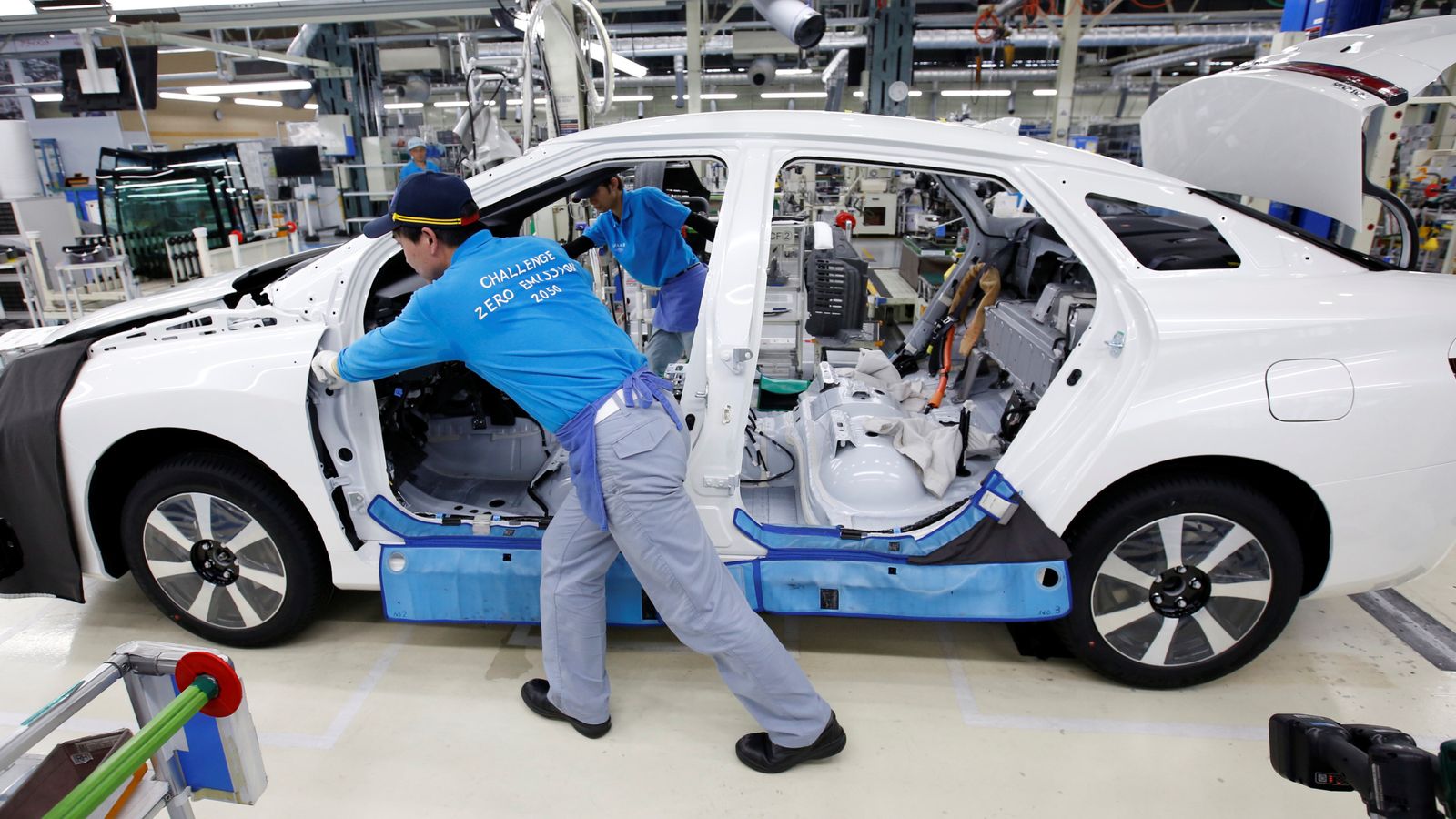Toyota has revealed a further big hit to its production expectations as it battles COVID absences and chip shortages at factories.
The world’s largest carmaker said it now expected to make half a million fewer vehicles in its current financial year to the end of March.
The figure of 8.5 million – down from a previously revised nine million – represents a reduction of 800,000 vehicles on where it had expected to be a year ago.
The firm, which has two manufacturing sites in Britain at Burnaston in Derbyshire and at Deeside in Wales, builds a sizeable portion of its vehicles in its home market of Japan where it has 16 factories.
They had already been disrupted by production line suspensions as COVID cases came to light.
The government in Tokyo imposed further COVID restrictions across much of the country this week as it battles surging cases of the Omicron variant.
Like other big global carmakers, Toyota has also been forced to cut output due to the pandemic’s impact on global supply chains.
Brexit: Costs, paperwork and delays the ‘only detectable impact’ of EU exit for businesses so far, report says
Energy crisis: Around £200m in credit balances ‘missing’ after supplier failures, Ofgem tells MPs
Arm’s $40bn sale to Nvidia is called off after US-UK regulatory pressure
The shortage of semiconductors is being felt worldwide and the UK’s biggest carmaker, Jaguar Land Rover, warned just last month that it expected to continue to feel that impact throughout 2022.
Toyota’s efforts to bolster profitability through cost-cutting has been aided so far by high demand for its vehicles that has allowed it to raise prices in key markets of China, Europe and the United States.
Another boost has come from a weaker yen that bolsters overseas’ earnings when booked in Japan.
While operating profits in its October-December quarter were down by a fifth, Toyota said it was sticking to its full-year forecast of $24.3bn.






















